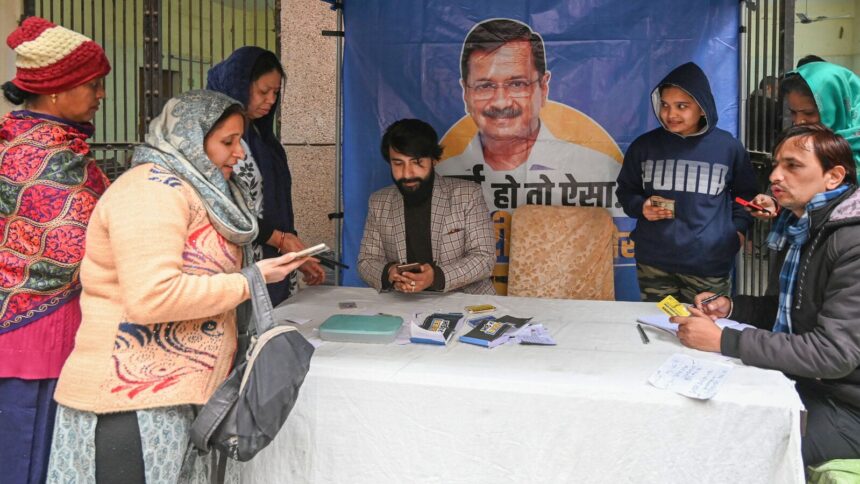Understanding the Controversy Surrounding AAP’s Mukhyamantri Mahila Samman Yojana
As the political landscape of Delhi heats up ahead of the Assembly Elections in 2025, the Aam Aadmi Party (AAP) has found itself at the center of a contentious issue regarding the Mukhyamantri Mahila Samman Yojana. This initiative, which was recently promoted by AAP leaders as a doorstep registration drive, has been met with vehement denial from the Delhi government’s Women and Child Development Department, which stated categorically that “no such scheme” is currently in existence.
What is the Mukhyamantri Mahila Samman Yojana?
Originally, the Mukhyamantri Mahila Samman Yojana was conceived as a financial support scheme aimed at women residing in Delhi. According to AAP’s statements, this initiative would provide a monthly allowance of ₹2,100 to women aged 18 and above who are not employed in government or political roles. In the 2024-25 budget, the Delhi government had mentioned a plan to provide ₹1,000 per month under this scheme, but AAP leaders have since escalated expectations, suggesting the amount would be raised to ₹2,100 if they are re-elected.
The Dispute and Political Fallout
The situation turned turbulent when AAP ministers and volunteers initiated an outreach program to register citizens for the Mahila Samman Yojana, which was officially declared non-existent by governmental authorities. AAP chief Arvind Kejriwal responded to the opposition’s concerns by accusing them of trying to undermine the party’s initiatives and hinted at possible political vendettas, including threats against Chief Minister Atishi.
BJP leader Manjinder Singh Sirsa has taken a strong stance against AAP, labeling Kejriwal “a big fraud” and accusing him of misleading citizens while knowing that there’s no sanctioned scheme in place. Sirsa emphasized that the registration drive appears to be an unauthorized attempt to gather personal data from the public, a claim that has further fueled accusations of impropriety on AAP’s part.
Government’s Warning
In its public notice, the Women and Child Development Department warned citizens against sharing personal information with unauthorized entities claiming to operate under the Mukhyamantri Mahila Samman Yojana. The government cautioned that such actions could lead to fraud, cybercrime, or data breaches. "The general public is also requested to exercise extreme caution while sharing personal details with any unauthorized person," the statement advised.
The Path Forward
The Delhi government has announced plans to launch a digital portal aimed at facilitating the registration process for any officially sanctioned future schemes. It has emphasized that true eligibility criteria and procedural guidelines will be disseminated through official channels, asserting that all legitimate details will only be available on their official website.
Conclusion
The political tussle surrounding the Mukhyamantri Mahila Samman Yojana exemplifies the turbulence often accompanying impending elections in India. As AAP endeavors to enhance its appeal to women voters, the backlash from opposition parties and government departments raises critical questions about accountability, transparency, and the ramifications of political promises. As the situation unfolds, it will be essential for the electorate to navigate these claims and counterclaims critically. In the face of such political drama, the stakes are undeniably high for all parties involved.










